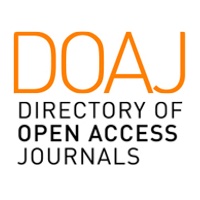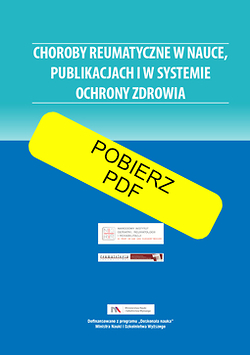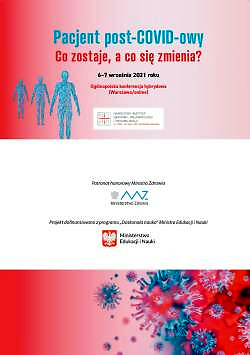|
2/2011
vol. 49
Komunikat
Profesor László Czirják został wybrany członkiem honorowym Polskiego Towarzystwa Reumatologicznego
Reumatologia 2011; 49, 2: 146–147
Data publikacji online: 2011/05/06
Pobierz cytowanie
Decyzją Zarządu Głównego Polskiego Towarzystwa Reumatologicznego, przyjętą 24 lutego 2011 r. w Warszawie, profesor László Czirják otrzymał tytuł członka honorowego Polskiego Towarzystwa Reumatologicznego.
Profesor László Czirják ukończył Wydział Lekarski Medycznego Uniwersytetu w Debreczynie w 1978 r. Po studiach specjalizował się w medycynie wewnętrznej jako asystent i adiunkt III Kliniki Chorób Wewnętrznych Medycznego Uniwersytetu w Debreczynie. Uzyskał również specjalizację z immunologii klinicznej i reumatologii. W 1989 r. uzyskał stopień doktora nauk medycznych na podstawie rozprawy o klinicznych i immunologicznych aspektach twardziny układowej (promotor – prof. Gyula Szegedi), a habilitował się w Węgierskiej Akademii Nauk w 1995 r. na podstawie rozprawy również dotyczącej twardziny układowej. W latach 1990–1995 był docentem w III Klinice Chorób Wewnętrznych Medycznego Uniwersytetu w Debreczynie, a następnie w latach 1995–2002 profesorem w II Klinice Chorób Wewnętrznych i Nefrologii Uniwersytetu Medycznego w Pésc. Od 2002 r. jest kierownikiem Kliniki Reumatologii i Immunologii Uniwersytetu Medycznego w Pésc. W 1987 r. odbył szkolenie w Instytucie Pasteura w Paryżu (Unite d’Immuno-Allergologie), a w latach 1988–1989 w Bostonie (Tufts University, Department of Pathology).
Profesor László Czirják jest światowej sławy badaczem zajmującym się przede wszystkim twardziną układową i innymi układowymi chorobami tkanki łącznej. Wśród tej tematyki wspomnieć należy o jego badaniach dotyczących epidemiologii twardziny układowej, tocznia rumieniowatego układowego i miopatii zapalnych, a także prace o zaburzeniach czynności serca oraz układu oddechowego i zmianach immunologicznych we wspomnianych chorobach. Badał również psychosocjalne aspekty tych chorób oraz wskaźniki aktywności twardziny układowej.
Profesor László Czirják jest autorem licznych publikacji ogłoszonych w wiodących czasopismach reumatologicznych. Wielokrotnie był zapraszany jako autor artykułów redakcyjnych. Wystarczy wspomnieć, że w bazie Medline wymienionych jest 226 jego publikacji. Jest znaczącą postacią międzynarodowego ruchu reumatologów. Od 2007 r. jest sekretarzem generalnym EULAR, w latach 2002–2010 był członkiem kierownictwa EUSTAR (EULAR Scleroderma Trials and Research Group), od 2010 r. jest sekretarzem EUSTAR. W latach 2004–2009 był prezydentem Węgierskiej Narodowej Grupy Klinicznej Immunologii i Alergologii. Jest współprzewodniczącym Komitetu Immunologii Węgierskiej Akademii Nauk (od 2008 r.) i członkiem zarządów wielu węgierskich towarzystw naukowych.
Profesora László Czirjáka znam od ponad 20 lat. Często wspomina On, że twardziną układową zainteresował się podczas jednego z pierwszych wyjazdów zagranicznych, kiedy to w Polsce spotkał profesor Stefanię Jabłońską i zapoznał się z jej badaniami. Jest mądrym, prawym człowiekiem o wielkiej życzliwości dla ludzi i chęci współdziałania z nimi. Jestem głęboko przekonany, że jest wielkim przyjacielem Polski. Ostatni raz odwiedził nasz kraj we wrześniu 2010 r., kiedy to gościł w Gdańsku na spotkaniu prezesów towarzystw reumatologicznych Europy Środkowej i Wschodniej. Od obecnego roku jest członkiem Międzynarodowej Rady Redakcyjnej naszego czasopisma. Wszyscy polscy przyjaciele i znajomi profesora László Czirjáka cieszą się z obdarzenia Go tytułem członka honorowego Polskiego Towarzystwa Reumatologicznego.
By the decision of the Board of the Polish Society of Rheumatology, made on 24 February 2011 in Warsaw, professor László Czirják received the title of an honorary member of the Polish Society of Rheumatology.
Professor László Czirják graduated from the Faculty of General Medicine at the University of Debrecen in 1978. He continued his education specializing in internal medicine as an assistant lecturer and assistant professor of the Third Internal Medicine Clinic of the University of Debrecen. He also became a clinical immunology and rheumatology consultant. In 1989, he was conferred a degree of Doctor of Medical Sciences upon producing a dissertation on clinical and immunological aspects of systemic sclerosis (professor Gyula Szegedi as the PhD thesis supervisor), and was qualified as a university professor by the Hungarian Academy of Sciences in 1995 on the basis of a dissertation that also regarded systemic sclerosis. In 1990–1995, he was an associate professor in the Third Internal Medicine Clinic of the University of Debrecen, and then in 1995–2002, he was a professor in the Second Internal Medicine and Nephrology Clinic of the Medical School, the University of Pécs. Since 2002, he has been the manager of the Clinic of Rheumatology and Immunology of the Medical School, the University of Pécs. He completed training courses in the Pasteur Institute in Paris (Unite d’Immuno-Allergologie) in 1987 and in Boston (Tufts University, Department of Pathology) in 1988–1989.
Professor László Czirják is a world-class scientist predominantly interested in investigating systemic sclerosis and other systemic connective tissue diseases. The subjects of his studies include epidemiology of systemic sclerosis, systemic lupus erythematosus and inflammatory myopathies, as well as research in cardiac activity and respiratory tract disorders and immunological changes in the said diseases. Moreover, he has examined psychosocial aspects of these disorders and activity rates of systemic sclerosis.
Professor László Czirják is the author of numerous publications in the leading rheumatologic magazines. He is often invited as an author of editorial articles. It is enough to mention that of this 226 publications can be found in the Medline database. He is a significant figure of the international rheumatology movement. Since 2007, he has been the Secretary General of EULAR; in 2002–2010, he was a member of the EUSTAR's executive committee (EULAR Scleroderma Trials and Research Group); since 2010, he has been acting as the Secretary in EUSTAR. In 2004–2009, he was the President of the Hungarian National Clinical Immunology and Allergy Group. He is a co-chairman of the Immunology Committee of the Hungarian Academy of Sciences (since 2008) and a board member of many scientific committees.
I have known professor László Czirják for 20 years now. He often reminds me that he became interested in systemic sclerosis during one of his first visits abroad, when he met professor Stefania Jabłońska and studied her research in Poland. He is a wise, right man with great kindliness for people and willingness to cooperate. I deeply believe that he is a great friend of Poland. His last visit to our country took place in September 2010 when he stayed in Gdańsk at the meeting of presidents of rheumatologic societies of the Middle and Eastern Europe. Since then he has been a member of the International Editorial Board of our journal. It is a pleasure for all of his Polish friends to see him receive the title of an honorary member of the Polish Society of Rheumatology.
Eugeniusz J. Kucharz
Copyright: © 2011 Narodowy Instytut Geriatrii, Reumatologii i Rehabilitacji w Warszawie. This is an Open Access article distributed under the terms of the Creative Commons Attribution-NonCommercial-ShareAlike 4.0 International (CC BY-NC-SA 4.0) License (http://creativecommons.org/licenses/by-nc-sa/4.0/), allowing third parties to copy and redistribute the material in any medium or format and to remix, transform, and build upon the material, provided the original work is properly cited and states its license.
|
|

 ENGLISH
ENGLISH












